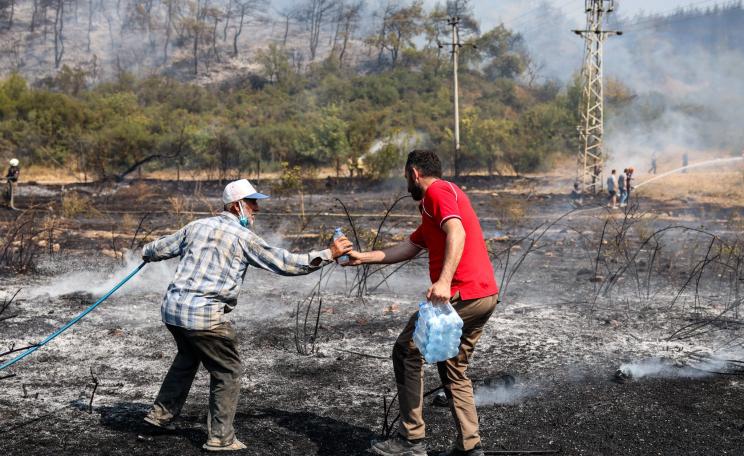This data should act as a wake-up call to inform policy at global and local government levels.
Coastal flooding could become more frequent and endanger millions more people around the world by the end of the century, a study warns.
The analysis examines the impact of greenhouse gas emissions continuing at high levels without strong action to curb them, causing global warming that melts ice, raises sea levels and causes more storms.
It warns north-west Europe, including the UK, is among the hotspots facing a rising risk of flooding, along with places such as India and the Bay of Bengal, and south east and east Asia.
Glaciers
Without coastal defences, the amount of land globally at risk of flooding will increase by 48 percent by 2100, making an extra 250,000 square kilometres (97,000 square miles) vulnerable around the world's coasts.
The number of people at risk from coastal floods would increase by 77 million to 225 million by 2100 under the projections, while as much as £11 trillion worth of infrastructure would be under threat - around 20 percent of global GDP.
The analysis, which looks at tidal variations, storm surges and sea level rises, does not take into account coastal flood defences such as sea walls which already provide significant protection in places such as the UK.
But the researchers, publishing their findings in the journal Scientific Reports, said it highlights the scale of action needed to offset the risks.
Ebru Kirezci, the lead author, from the University of Melbourne, Australia, said: "A warming climate is driving sea level rise because water expands as it warms, and glaciers are melting.
Defences
"Climate change is also increasing the frequency of extreme seas, which will further increase the risk of flooding.
"What the data and our model is saying is that compared with now, what we see as a 1-in-100-year extreme flood event will be 10 times more frequent because of climate change."
Professor Robert Nicholls, the lead UK author and director of the Tyndall Centre for Climate Change Research at the University of East Anglia, said: "This analysis shows the urgency of action to address sea level rise via both climate mitigation to reduce the rise and adaptation such as better coastal defences, as some of the rise is unavoidable."
Professor Ian Young, a co-author, from the University of Melbourne, said while north-west Europe is particularly exposed to rising flood risk, the study shows other major risk areas in every continent.
"This data should act as a wake-up call to inform policy at global and local government levels so that more flood defences can be built to safeguard coastal life and infrastructure," he said.
This Author
Emily Beament is the PA environment correspondent.







